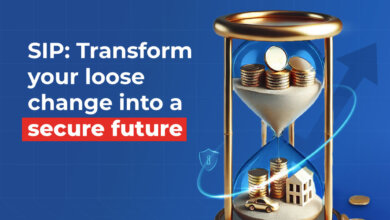Best Sustainability Reporting Software: Empowering Businesses for a Greener Tomorrow
Understanding Sustainability Reporting and Its Rising Importance
Sustainability reporting has become an essential practice for businesses across the globe. As climate change, social responsibility, and transparent governance gain priority, companies are compelled to measure and disclose their environmental, social, and governance (ESG) performance. This reporting is not only crucial for regulatory compliance but also for enhancing investor confidence, attracting eco-conscious consumers, and showcasing corporate accountability. The best sustainability reporting software provides businesses with the tools to track, analyze, and report their ESG initiatives efficiently and in compliance with global standards like GRI, SASB, TCFD, and CSRD.
Why Businesses Need the Best Sustainability Reporting Software
Modern enterprises operate in a landscape where stakeholders demand transparency on sustainability efforts. Traditional methods such as spreadsheets or disjointed reporting tools are time-consuming, error-prone, and lack real-time data insights. The best sustainability reporting software offers automation, integrated data collection, analytics, and standardized reporting formats. It simplifies complex frameworks, reduces manual labor, and enables real-time insights into environmental impacts, energy usage, carbon emissions, supply chain sustainability, waste management, and more. Such tools empower organizations to align operations with their ESG goals and regulatory requirements while enhancing brand credibility.
Key Features of Top Sustainability Reporting Tools
When evaluating the best sustainability reporting software, several features distinguish market leaders from the rest. First, multi-framework support ensures compatibility with international standards like GRI, CDP, SASB, and TCFD. Second, automation capabilities streamline data collection from various departments and systems, reducing human error. Third, robust analytics and visual dashboards provide actionable insights into ESG performance. Fourth, real-time carbon footprint tracking and emissions monitoring are critical for environmental reporting. Fifth, user-friendly interfaces and collaborative workspaces enhance team productivity. Lastly, seamless integration with ERP, CRM, and HR systems ensures a single source of truth across departments.
Leading Sustainability Reporting Software in 2025
1. SpheraCloud ESG Software
SpheraCloud is renowned for its robust and scalable sustainability reporting solutions. It offers a unified platform for ESG data management, risk assessment, and sustainability performance tracking. With built-in support for frameworks such as GRI, CDP, and TCFD, it enables companies to stay compliant while customizing reports based on stakeholder needs. It also provides real-time tracking of greenhouse gas emissions, water usage, and energy consumption. The intuitive dashboard and powerful analytics tools allow for quick identification of inefficiencies and strategic decision-making. SpheraCloud’s integration capabilities with enterprise systems make it a preferred choice for multinational corporations.
2. Benchmark ESG by Gensuite
Benchmark ESG is widely adopted by enterprises seeking a comprehensive environmental compliance and sustainability platform. Its sustainability module supports ESG disclosures aligned with global frameworks and enables real-time performance tracking through data visualization tools. Benchmark ESG offers automated data capture, AI-powered insights, and audit management capabilities. The cloud-based software empowers businesses to engage suppliers and internal teams, fostering collaboration on sustainability goals. Whether it’s carbon tracking, water usage, or DEI (Diversity, Equity, and Inclusion) metrics, Benchmark ESG delivers a full-spectrum ESG reporting solution.
3. Diligent ESG
Diligent ESG is a part of the Diligent Governance Suite and is tailored for boards and executive teams. It centralizes ESG data collection, risk analysis, and reporting in one platform. Diligent supports compliance with ESG regulations and provides advanced benchmarking tools to measure company performance against industry peers. One of its standout features is its board-level reporting functionality, which provides concise ESG scorecards for executives. Integration with financial systems and audit trails ensures data accuracy and transparency. Diligent is ideal for large corporations prioritizing governance and regulatory alignment in their sustainability initiatives.
4. Ecochain Helix
Ecochain Helix is a sustainability intelligence platform focused on life cycle assessments (LCAs) and environmental footprint tracking. It helps manufacturers assess the environmental impact of their products and processes, making it highly relevant for industrial sectors. With real-time LCA modeling, users can test the sustainability impact of changes in materials, suppliers, or energy sources. Helix translates complex environmental data into actionable reports aligned with GHG Protocol and Science-Based Targets. The platform also enables organizations to visualize hotspots and opportunities for emission reductions and resource efficiency.
5. Cority Sustainability Cloud
Cority is a long-standing leader in environmental, health, and safety (EHS) software. Its Sustainability Cloud brings powerful ESG reporting features to organizations looking to manage performance with precision. The software includes customizable dashboards, regulatory templates, and robust data validation mechanisms. It supports CSRD, GRI, and CDP standards and helps users streamline sustainability disclosures through automated workflows. Cority’s strength lies in combining ESG with EHS functions for a holistic approach to corporate responsibility. With its mobile access and cloud infrastructure, users can track ESG metrics anytime, anywhere.
6. Novisto
Novisto is a modern, AI-driven ESG reporting solution focused on streamlining the data lifecycle—from collection to analytics to reporting. It provides centralized ESG data governance and automatically maps inputs to reporting standards like SASB and TCFD. Novisto emphasizes data integrity, audit readiness, and dynamic stakeholder reporting. Its real-time insights and automation make it highly efficient for mid-to-large enterprises. Additionally, it allows companies to benchmark ESG scores against industry averages, a feature increasingly demanded by investors and rating agencies.
7. Enablon by Wolters Kluwer
Enablon is one of the most comprehensive ESG and EHS platforms, known for its enterprise-grade sustainability tools. It offers a suite of modules covering ESG reporting, risk management, and compliance tracking. Enablon’s ESG platform enables users to configure KPIs, automate data imports, and align with various global standards. With predictive analytics, incident tracking, and risk mitigation tools, it offers a forward-looking approach to sustainability management. Its modular architecture allows organizations to scale the software as sustainability goals evolve.
8. Workiva ESG Reporting
Workiva is a cloud-based platform that integrates financial and non-financial reporting into a single workflow. Its ESG solution enables collaboration across departments, version control, audit trails, and real-time updates. Workiva supports multiple frameworks and provides out-of-the-box templates for quick setup. One of its unique features is its linkage capability, which connects ESG data directly with financial filings, making it a powerful tool for publicly traded companies. With native integrations and real-time dashboards, Workiva is ideal for ESG teams aiming for speed, accuracy, and compliance.
9. Intelex Sustainability Performance Indicators (SPIs)
Intelex offers a focused set of sustainability performance indicators that help companies track and improve ESG outcomes. Its reporting solution includes emissions tracking, waste management, energy consumption, and water usage metrics. The platform also facilitates goal setting, progress monitoring, and stakeholder communication. Intelex supports data validation and customizable reporting to ensure accuracy and alignment with key frameworks. Its open architecture and API connectivity allow integration with legacy systems and business intelligence tools.
10. FigBytes ESG Insight Platform
FigBytes brings storytelling to sustainability reporting. It allows businesses to align ESG strategies with UN SDGs, global frameworks, and internal KPIs. The platform excels in data visualization, making sustainability insights accessible to non-technical stakeholders. FigBytes enables automated data imports from IT systems, offers scenario planning tools, and allows for interactive stakeholder engagement. Its emphasis on both qualitative and quantitative storytelling sets it apart as a strategic communication tool in the ESG space.
Benefits of Using the Best Sustainability Reporting Software
Efficiency and Accuracy
Automation of data collection and reporting reduces human error and saves significant time. The best sustainability reporting software ensures data accuracy through validations and audit trails, making reports reliable for regulators and investors.
Regulatory Compliance
Global ESG reporting frameworks are evolving rapidly. These software platforms help businesses stay compliant with local and international mandates like CSRD, SEC’s climate disclosure rules, and EU Taxonomy.
Stakeholder Engagement
Clear, interactive ESG reports enable organizations to communicate their values and performance to investors, customers, regulators, and employees. Transparent reporting builds trust and strengthens stakeholder relationships.
Strategic Decision Making
By analyzing sustainability data in real time, companies can identify inefficiencies, reduce costs, and invest in impactful initiatives. ESG insights support risk mitigation and long-term business resilience.
Brand Reputation and Competitive Advantage
Sustainability performance is increasingly influencing consumer decisions and investment portfolios. Companies using top-tier ESG reporting tools can showcase their commitment to responsible business, gaining a competitive edge.
Scalability and Flexibility
As sustainability priorities evolve, these software solutions offer scalability. Whether a company starts with basic carbon tracking or a full-fledged ESG strategy, the best tools grow with the organization.
How to Choose the Best Sustainability Reporting Software for Your Business
1. Understand Your ESG Objectives
Before selecting a platform, define your sustainability goals—whether it’s regulatory compliance, carbon neutrality, supply chain transparency, or stakeholder reporting.
2. Assess Framework Compatibility
Ensure the software supports the reporting frameworks relevant to your industry and geography, such as GRI, SASB, TCFD, CDP, or CSRD.
3. Evaluate Integration Needs
Check how well the software integrates with your existing ERP, HR, CRM, and IoT systems for seamless data collection and automation.
4. Prioritize User Experience and Training
Choose a platform with an intuitive interface and strong customer support. Consider training options for internal teams and onboarding processes.
5. Look for Real-Time Analytics and Automation
Real-time dashboards, predictive insights, and AI-based automation make reporting faster and more actionable.
6. Consider Data Security and Compliance
Given the sensitive nature of ESG data, ensure the platform follows strong security protocols and offers audit-ready features.
Future of Sustainability Reporting Software
The ESG landscape is becoming more sophisticated. In the near future, we can expect sustainability reporting tools to integrate advanced AI and blockchain for enhanced transparency, traceability, and fraud prevention. Real-time emissions tracking through IoT devices and satellite data will become commonplace. Software will evolve to include climate risk modeling, scenario planning, and stakeholder sentiment analysis. The best sustainability reporting software will not just be a reporting tool but a strategic asset for driving sustainable transformation.
Conclusion
The journey toward sustainable business practices starts with clear, accurate, and insightful reporting. The best sustainability reporting software enables organizations to navigate this complex yet crucial domain with confidence. From enhancing transparency and meeting regulatory requirements to aligning with global sustainability goals and building stakeholder trust, these tools are indispensable in the ESG ecosystem. As sustainability continues to be a defining factor for business success, investing in the right software is a step toward a greener, more responsible future.




